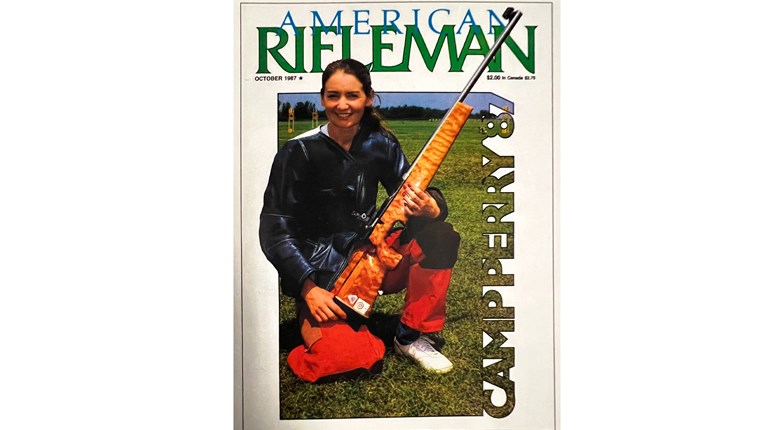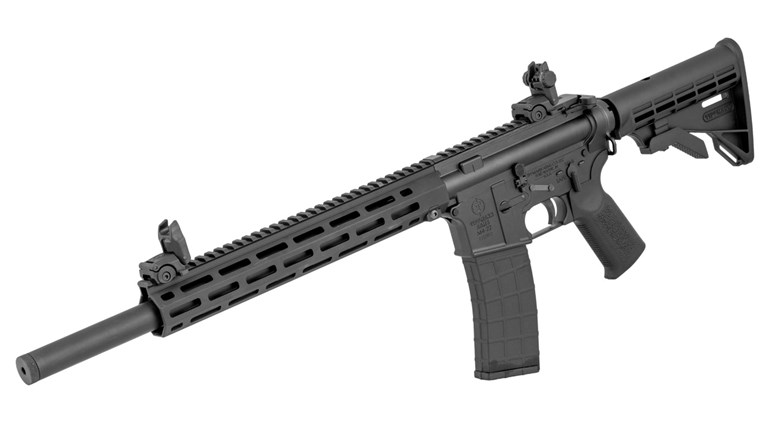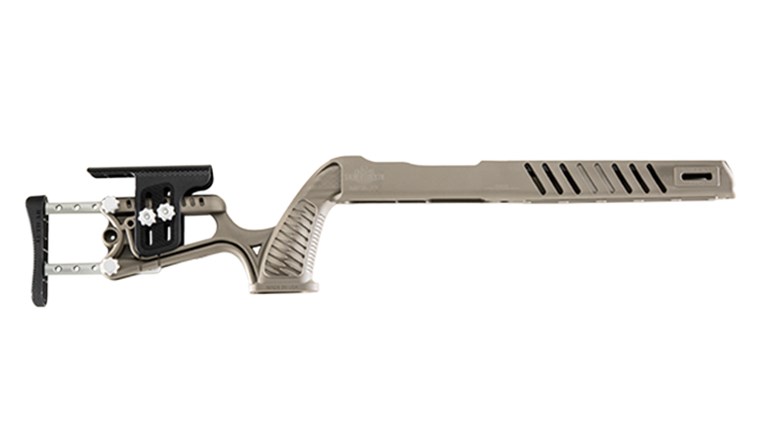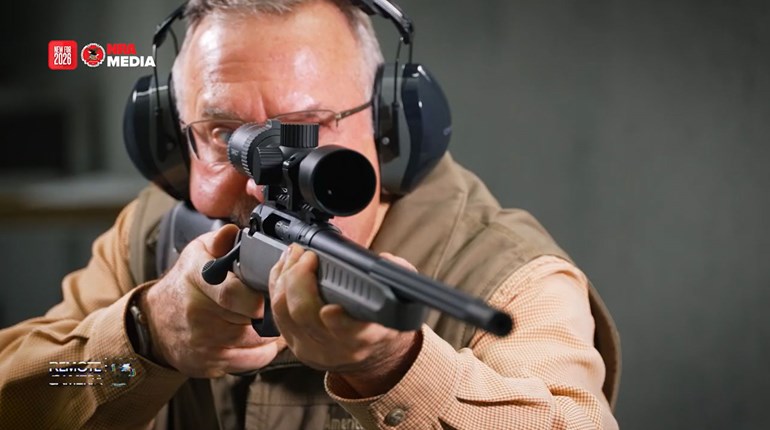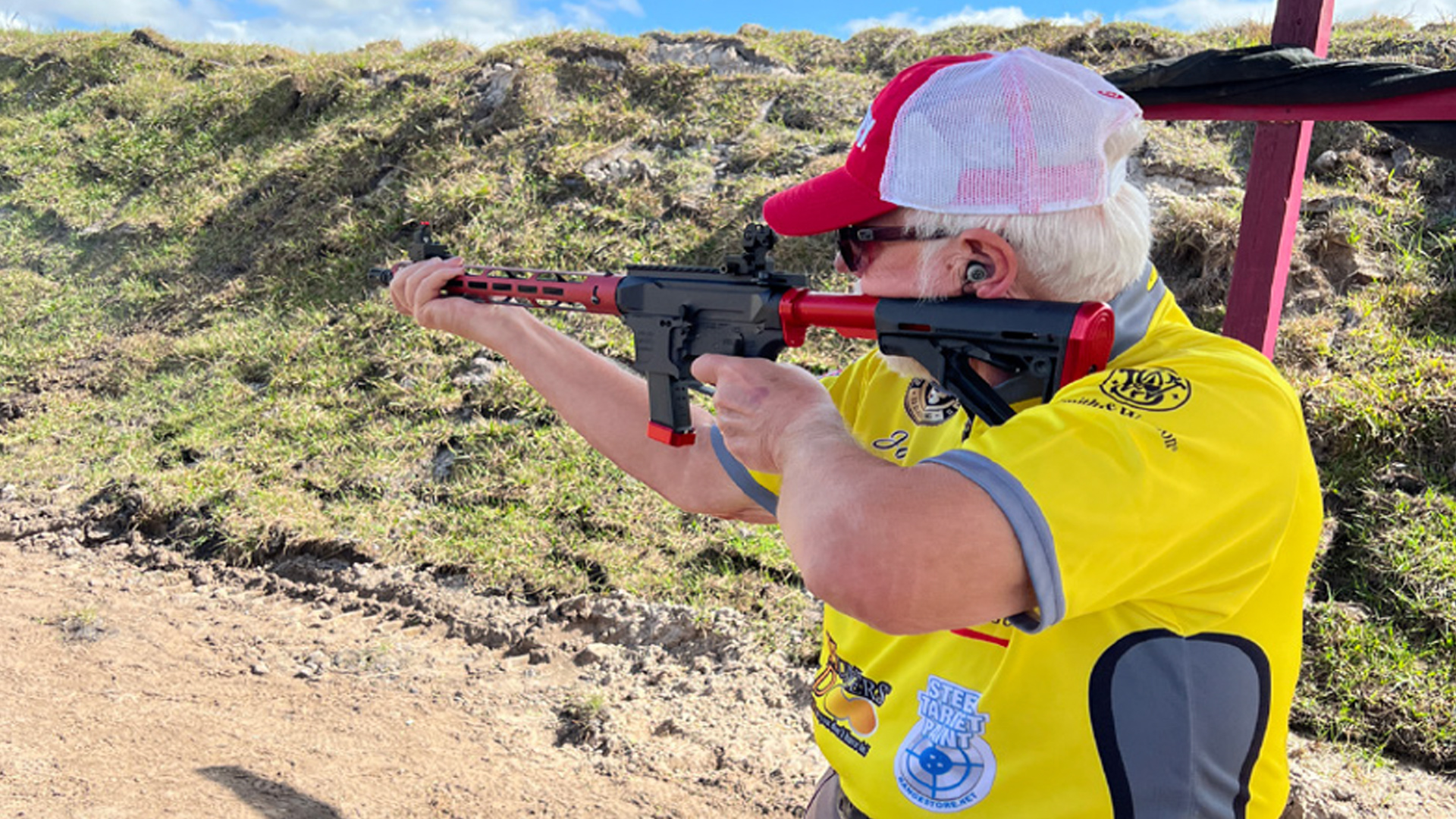
For many of us, shooting Steel Challenge is something new and we might not know the history of it. We know that there are eight official stages, that there are Peak Stage times and a classification system for the 13 divisions, but we don’t know how it all came to be.
I am not a Steel Challenge historian by any means, nor did I attend the original event that was held in California. Folks such as Kurt Grimes, Art Leach, Jim O’Young and Greg Kerce can give you a much better history lesson, going all the way back to when Steel Challenge started. Here, I will review some things about the origins and history that lead us to the 2022 Ultimate Steel Challenge Match.

History Lesson
In 1981, Mike Dalton and Mike Fichman set out to create a shooting sport that was viewer friendly. At the time, the Bianchi Cup was the most prestigious shooting event, and one of the most popular parts of that match was the Falling Plate Event. The Bianchi Cup format includes four separate shooting events combined into an aggregate match score: the Practical Event, the Barricade Event, the Moving Target Event and the Falling Plate Event. What the two Mikes noticed was that everyone watched and could understand the Falling Plate Event, because it was easy to score, easy to watch and made for exciting shooting.
They developed Steel Challenge around the idea of a shooting sport that everyone could understand and would be exciting to watch. The match itself was several days long and had many different stages over the years, compared to the eight official stages that we know now. Many stages were part of side matches during the event that was held in Piru, California, from the start up until 2011. The original matches were also set up with a focus on achieving Steel Master by shooting the three matches. At the time, these were held in Piru. It was required to shoot the Rimfire Match, which was on Thursday only, then competitors had to shoot two of the center-fire divisions in the Main Match on Friday and Saturday. At the time, firearms were essentially an iron sight handgun and an optic sight handgun.

It is unclear when the final eight official Steel Challenge stages became the main stages that we know now. It was what USPSA purchased Steel Challenge from Fichman and Dalton back in 2007, along with the eight official stages, the name, logo and the rules. But what happened to all the other stages that were shot over the years?
There were several, but four additional stages that were shot for many years stand out. Greg Kerce is the match director for the First Coast Steel Shooters at the Volusia County range in Florida. He was a regular at the original matches and remembers the “retired” stages. Greg also likes to shoot a lot, so why not have the “Ultimate Steel Challenge” Match?
That is exactly what he has been doing. This year was the third match and was held February 25 to 28, including the official eight stages, plus the four “retired” stages.
“Retired” Stages
Triple Threat is just a flat out pedal-to-the-floor, fast and dirty steel stage. Three 12-inch round plates that are from six yards to 10 yards are set one-yard apart; they are set two feet, 3.5 feet and five feet from the ground with the stop plate being at 10 yards back and at five feet high. Raegan Hearn, who is blazing a trail as tough young female competitor in Steel Challenge, had the fastest time of 0.89 second for the three shots in Rimfire Pistol Open, with a total time of 4.05. You could blink and miss it.
If you think that is fast, wait until you shoot Double Trouble. This is just two 12-inch round plates at seven yards. The bottom one is 2.5 feet from the ground and the top—the stop plate—is three feet. Your reaction to the buzzer is slower than the shooting on this one. The top times in the low ready divisions were all under three seconds for four strings.

One of the other retired stages included at the Ultimate Steel Challenge Match was the “Flying M.” This stage originally included movement, as well as having to knock a can off a ledge that was three feet above the ground with the drawing hand before touching the firearm. This was changed at some point, removing the can, but still had forward movement from one start line to a forward foul line. “Flying M” was set up with the start line and forward foul line three yards apart. There are two 18x24-inch rectangles set at 18 yards from the start line and 12 feet apart. There are two outside 12-inch round plates that are 10 yards from the forward fault line and the stop plate is a 12-inch round plate at seven yards from the forward fault line. From the start line, competitors shoot the two 18x24s and then move forward, shooting the two outside round plates and then the stop plate. This is a tougher stage than you would think, not just the short movement, but the wide outside transitions are 30 feet from side to side.
My favorite of the retired stages was “Zig Zag.” Five 12-inch round plates are staggered three feet apart starting at 10 yards, 12 yards, 15 yards, 18 yards and the stop plate at 20 yards. The plates are staggered in height from 1.5 feet, two feet, three feet, four feet and five feet from the ground. This was an easy stage to go too fast on, getting sucked into what you thought would be easy. Raegan Hearn again was just smoking fast through this stage with 1.73, 1.74, 2.22 and 1.70 string times. I shot this in 14.17 seconds from the holster in Limited, 2.78 seconds off Gorka Ibanez. This is a stage that I would love to see come back in a side match.
2022 Ultimate Steel Challenge Leaderboard
- Open Division High Overall: Doug Koenig (123.54)
- Carry Optics High Overall: Clifford Pietruski (147.54)
- Rimfire Pistol Open High Overall: Raegan Hearn (103.11)
- Rimfire Rifle Open High Overall: Raegan Hearn (103.58)
- Rimfire Rifle Irons High Overall: Raegan Hearn (98.92)
- Pistol Caliber Carbine Optics High Overall: Jimmi Soldo (117.76)
See the full results of the match at the Practiscore website.
The Volusia County range and First Coast Steel Shooters have an amazing setup for Steel Challenge. All eight stages are permanently set up on the range, under cover with safe tables, benches and plenty of room for bags and competitors on each bay. The bays are separated to the far side of the range with a parking area close by. Volusia County members have access to practice the stages and there is no shortage of matches during the week. It is definitely a Steel Challenge shooters' paradise, with the warm weather of Florida, and conveniently located near the New Smyrna Beach, Daytona and Ormond Beach areas. It's also about an hour northeast of Orlando, so finding flights into the area is easy.
The range will be the host of the Area 6 Steel Challenge Match, September 30 to October 2. Greg Kerce has been a top competitor and is a semi-retired pro shooter that has done an excellent job building a solid Steel Challenge Club at Volusia County. Be sure to sign up for the 2022 Area 6 Steel Challenge Championship. Visit scsa.org.
Article from the May/June 2022 issue of USPSA’s magazine.













